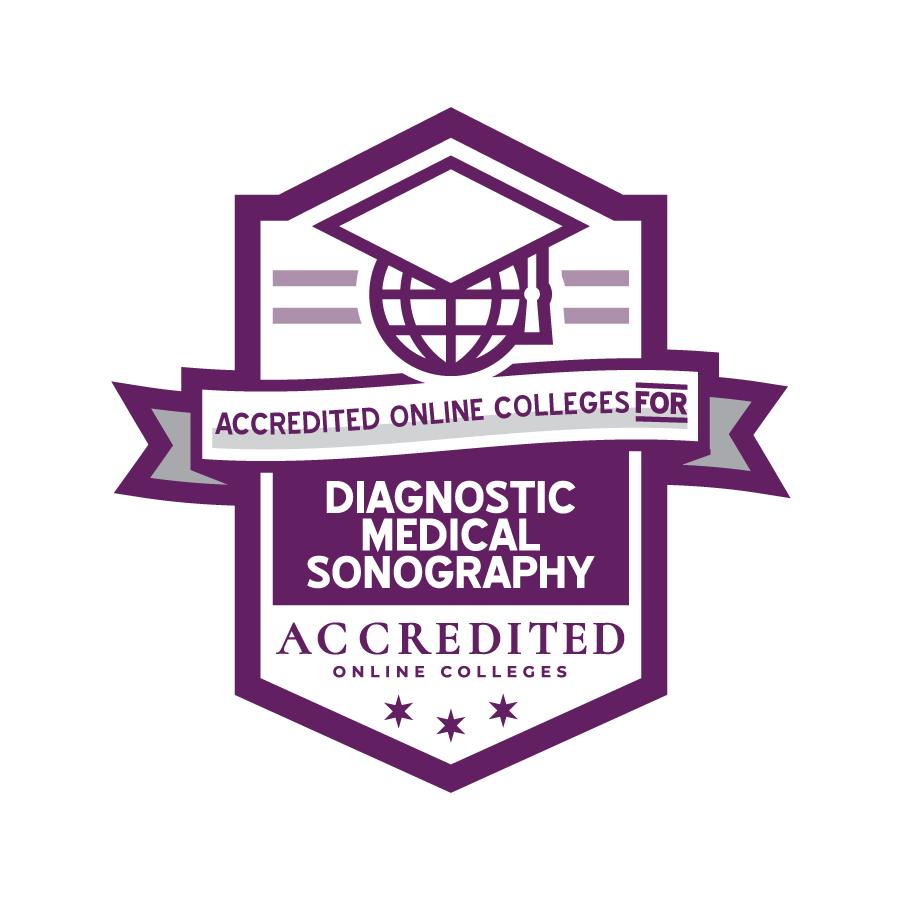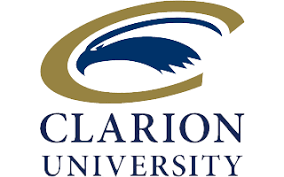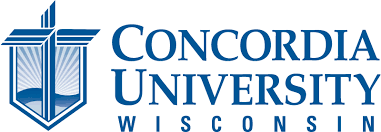The best accredited online colleges for diagnostic medical sonography could help you earn your bachelor’s degree in as few as 1.5 years with prior college study!
Accredited online colleges for diagnostic medical sonography are becoming more commonplace. More and more colleges and universities are beginning to offer online sonography programs to cater to the huge predicted rise in positions over the next decade. Whether you already hold an associate degree, or you’re a first-time college student, you could earn a respected degree that will make you more attractive to future employers for salary increases and promotions in your field. Aspiring diagnostic medical sonographers should check out these online programs.
Featured Programs
What will you learn with this accredited degree program?
Online programs in diagnostic medical sonography follow the same curriculums as traditional, campus-based programs. Depending on whether you choose a four-year program or a degree completion program, you could be studying a blend of both general education courses and sonography courses that will increase your knowledge and skills in the area of diagnostic medical sonography.
See Also: Financial Aid Tips for Online College
What kind of classes will you take?
Some degrees offer concentrations or specializations, so your exact program of study will depend on your goals and your choice of courses. In general, you’ll learn about the tools and techniques used by sonographers to help diagnose and treat patients. This could include abdominal, cardiac, and obstetric sonography courses for example.
See Also: Strategies for Excelling in Your Online Medical Assistant Program
Will I have to attend campus for this program?
This entirely depends on the program that you choose. There are fully online diagnostic medical sonography programs that don’t require you to visit campus. However, these online programs are usually degree completion programs, as they assume you already hold the necessary credentials to work as a sonographer, or that you at least have the number of clinical hours required to gain your credentials from past work experience. Four-year programs tend to include a clinical component.
What are the Best Diagnostic Medical Sonography Degrees?
Accredited Online College uses the most recent data from the Department of Education’s National Center for Education Statistics. Each program is scored individually. It’s then compared to all other universities offering that degree to determine the final score you see by each ranking. Accredited Online College considers the affordability, student-to-faculty ratio, and the number of programs offered on-campus and online. To learn more, visit our methodology page.
Check out these online medical sonography programs.
#1. Ferris State University
Ferris State University offers new students a Vascular Ultrasound Certificate, which could help secure a role as a vascular technologist. This unique specialism involves gathering and recording data relating to the anatomy and physiology of blood vessels. You’ll play a crucial role in helping to diagnose and treat vascular system disorders.
Thanks to online classes, acquiring this certificate is as simple as completing the necessary classes via distance learning. Admission into the program requires active American Registry for Diagnostic Medical Sonography (ARDMS) or American Registry of Radiologic Technologies (ARRT) Sonography (S) credentials. Classes include:
- Venous Ultrasound
- Arterial 1
- Cerebrovascular Ultrasound
Typical undergraduate freshman or sophomore tuition for U.S. and Canadian residents is around $12,740 per year. This is around $455 per credit hour. For juniors or seniors, the tuition rate rises to around $13,636, which is around $487 per credit hour. International students pay around $21,924, which is around $783 per credit hour.
#2. Fort Hays State University
The Online Bachelor of Science in Medical Diagnostic Imaging program at Fort Hays State University will let you cross-train in a number of areas of advanced imaging. These include courses that cover Bone Densitometry (BD), Cardiovascular Interventional Technology (CVIT), Mammography (M), and more. You’ll complete a total of 124 credit hours prior to graduation.
In addition to choosing 33 credit hours’ worth of electives, you’ll complete a 55-credit foundation comprising the university’s general education requirements. This involves courses for the diagnostic medical sonography program such as:
- Human Biology
- Personal Wellness
- College Algebra
Your core courses to become a diagnostic medical sonographer will include those such as:
- CT Procedures
- Sectional Pathology and Variant Anatomy
- Cross Sectional Anatomy
Undergraduate tuition rates at Fort Hays State University are reasonably affordable. Residents of Kansas pay around $181.46 per credit hour, which increases to around $250.59 for residents of MSEP. This rises again to around $529.68 for non-residents. For more information on what each of these bands means, check out the university’s website.
#3. Washburn University
At Washburn University, you can choose to pursue one of three, one-year advanced certificates in Diagnostic Medical Sonography (DMS). If you are looking for online programs to become a diagnostic medical sonographer, Washburn University might be a good option for you. You can also choose to pursue additional certificates once you’ve completed your first. These are:
- General Sonography
- Cardiac Program
- Vascular Program
For admission, you’ll need to have earned an associate degree or higher-level qualification.
All courses for these three programs are available online, and you’ll also complete clinicals at a site close to your home location. Each program is accredited by the Commission on Accreditation of Allied Health Education Programs (CAAHEP), and you could even complete your clinical requirements at your employer’s location if you are working in healthcare.
At Washburn University, traditional undergraduate courses attract a rate of around $315.25 per credit hour for residents of Kansas, Missouri, Nebraska, Colorado, Oklahoma, and Texas. The same qualifying residents will pay around $410.00 per credit hour for online undergraduate courses. Non-residents pay $708.25 when based on-campus, otherwise, they’ll pay the same rate of $410.00 per credit hour for online courses.
#4. University of Arkansas for Medical Sciences
The UAMS College of Health Professions offers a Bachelor of Science Degree in Diagnostic Medical Sonography. This full-time program welcomes 13 students each fall semester, and for admissions consideration, you’ll need to have completed 47 credits of prerequisite coursework. There’s also the opportunity to earn a number of credentials upon graduating from the program.
These include the Registered Diagnostic Medical Sonographer (RDMS), Registered Vascular Technologist (RVT), and Registered Diagnostic Cardiac Sonographer credentials. To earn them, you will need to pass the necessary examinations during the course of your studies. Admission into this particular degree is based on academic achievement and aptitude, leadership, professionalism, and your written and verbal communication skills.
The diagnostic medical sonography program is accredited by the Commission on Accreditation of Allied Health Education Programs (CAAHEP).
You’ll take courses in this online diagnostic medical sonography program such as:
- Health Care Systems in America
- Introductory Cardiac & Vascular Sonography
- Current Issues in Health Care
To apply for a program at the University of Arkansas for Medical Sciences, you’ll pay an application fee of around $100. Tuition for undergraduate programs typically costs around $33,010 for residents and $65,180 for non-residents each year. For more accurate estimates and online costs, check out the university’s tuition and fees page.
#5. Jackson College
At Jackson College, you can earn your Associate in Applied Science in General Sonography. Accredited by the Commission for Accreditation of Allied Health Educational Programs (CAAHEP), this program comprises two years’ study. You will also be expected to complete at least 1,350 supervised clinical experience hours in an approved site.
In addition to completing general education requirements, you’ll take core courses like:
- Sonographic Techniques
- Abdomen and Small Parts Sonography
- Obstetric and Gynecologic Sonography.
It’s worth noting that there are special admissions requirements associated with this diagnostic medical program; you’ll find these on the program page.
Tuition at Jackson College is typically charged by the credit hour. as a Jackson County resident, you could pay as little as $168 per credit hour. Extended County qualifying residents from Albion, Cement City, Chelsea, Homer, Jerome, Leslie, Litchfield, Manchester, and Stockbridge can pay the same rate. Out of county but in-state residents pay around $190, while state students pay around $327.
#6. University of Nebraska Medical Center
The University of Nebraska Medical Center offers employed imaging and radiation science professionals the opportunity to earn a Bachelor of Science in Medical Imaging & Therapeutic Sciences. In this medical imaging program, you’ll pair with an advisor who will help you to develop a tailored study plan that links to your professional goals.
Bear in mind that this is a degree completion program, which means there are no professional clinical education requirements. You may take up to 5 years to complete all of the required coursework for this program, but you could finish in as few as 3 semesters through full-time study.
Courses for this medical imaging degree include:
- Health Care Ethics & Critical Thinking
- Management in Healthcare
- Scanning the Healthcare Environment
The good news is that you’ll pay the same rate of tuition and fees for this accredited program regardless of your residency. Tuition is charged at around $341.00 per credit hour, and you’ll pay fees of around $41.25 per credit hour. This makes for a total of $382.25 per credit hour for both state residents and non-residents.
#7. University of Cincinnati Blue Ash College
Through the University of Cincinnati Online, you can earn a Bachelor of Radiation Science Technology degree. Comprising 60 credits in total, the program offers clinical specialization in the areas of Computed Tomography or Mammography. It’s a fully online program, which means that you won’t be required to visit the campus.
Beyond the knowledge required by radiation technologists, this program will also develop your technical skills and impart you with leadership skills. You’ll also study how law, economics, research, diversity, ethics, and communication tie into the role of the radiation technologist. You’ll also be able to complete an internship with a focus on management or education.
Typical tuition for this program is around $455.00 per credit hour. In addition, you’ll pay a general fee of $33, ITIE fee of $15, distance learning fee of $22, and program fee of $7 for each credit hour. Thus, the total cost per credit is around $532. Non-residents pay around $547 due to a surcharge.
#8. Clarion University
Clarion University offers a Bachelor of Science in Medical Imaging Sciences, which comprises 120 credits. You may choose between two concentrations, which are Radiologic Technology and Ultrasound (Sonography). These two-plus-two programs break down your time into two years’ worth of academic studies, and two year’s clinical experience.
Your clinical experience may be completed at any of six JRCERT-accredited schools of radiologic technology based at clinical sites or the Great Lakes Institute of Technology. That said, if you’re already credentialed, you may complete the online degree option instead.
At Clarion University, PA residents pay around $11,174 in tuition each semester. However, online students pay even less. As an online student, you’ll pay around $9,829 as a PA resident or around $11,108 as a non-resident. Scholarships are also available, which could help you to meet the cost of your program.
#9. AdventHealth University
At Advent Health University, you could enroll in a Bachelor of Science in Imaging Sciences Online. As the name suggests, this is a fully online program that has been ranked No. 3 for Best Return on Investment. Advent Health was also one of the first institutions in the nation to offer an online bachelor’s degree of this type.
Since its inception, this online program has grown to offer 6 specializations in broad subject areas. These include:
- Imaging Leadership
- Computed Tomography (CT)
- Magnetic Resonance Imaging (MRI)
- Vascular Interventional (VI)
- Sonography
- Interdisciplinary
Regardless of your choice, you’ll have a multilevel support system that’s dedicated to looking after online students who don’t attend campus.
At Advent Health University, you pay an application fee of $20 and typical undergraduate tuition of around $540 per credit hour. For the most accurate estimate of tuition fees, you can use the university’s tuition calculator. There are also a number of financial aid options available for students, even those who study online.
#10. Concordia University
Concordia University has a Bachelor of Science in Diagnostic Medical Sonography, which is a degree completion program. The program has been designed for licensed sonographers who need to finish their degree in order to progress their career. Comprising 120 credits, this program features flexible format courses that last 6 to 8 weeks.
You could transfer up to 84 credits toward this program, but you’ll need at least 63 credits from prior college-level study in order to apply. With the maximum number of transfer credits, you could finish in 1.5 years or less.
Students enrolled in this program pay a tuition rate of around $526 per credit hour. What’s more, there are thousands of dollars available in scholarships that apply to this program. Scholarships are also available for employees of Christian churches and educational institutions. More information on scholarships can be found on the university’s website.
Frequently Asked Questions
Can you study diagnostic medical sonography online?
Many institutions across the U.S. now offer sonography and ultrasound programs as part of their online program listings. As such, it’s not too difficult to find an accredited online college for diagnostic medical sonography. However, while most degree programs in humanities or STEM subjects are similar, sonography programs can vary from one institution to the next.
For example, while some universities offer full, four-year degree programs, others are degree completion programs. These shorter degrees require you to have an existing bachelor’s degree or certificate, with a minimum number of transferable credits. The intention here is for you to be able to gain your bachelor’s degree in a short space of time.
What’s more, you should also consider whether you need to meet a minimum number of clinical hours to gain any needed credentials. Some degrees have a clinical component, which often can’t be completed online, whereas others won’t have any clinical work and will instead assume that you’re a working professional with a number of years of experience already under your belt.
So, to summarize, if you’re a working professional who already holds an associate degree, and you’d like to increase your chance of promotion, then you might want to consider a degree completion program. If you’re a working sonographer who has never been to college, then you should instead consider a four-year bachelor’s program.
What can I do with a bachelors in diagnostic medical sonography?
Of course, one of the most common roles pursued by graduates of a diagnostic medical sonography program is that of the medical sonographer. Using technology that is capable of scanning internal organs and other biological processes, you’ll aid in the diagnosis of illnesses and treatment of patients.
There are opportunities for specialization within this career too. For example, you could become:
- abdominal sonographer
- cardiac sonographer
- obstetric sonographer
Your location of work could also vary, and you may find a position within a doctor’s surgery, school, hospital, or other clinic.
Alternatively, you could work as a sales and marketing representative for the companies who sell sonography equipment to hospitals, clinics, and other organizations. You could also consider the position of research scientist. These professionals help to advance the field of sonography with new equipment and processes.
How much can I earn with a bachelors in diagnostic medical sonography?
Medical sonographers and cardiovascular technologists earned almost double the national average salary in 2020. According to the Bureau of Labor Statistics (BLS), the 2020 median pay for these professionals was around $70,380, or $33.84 per hour. Predicted growth in this area over the next decade is around 14%, much faster than average, which represents around 19,100 new positions.
This represents some of the highest salaries available to those working in this or a similar area. For example, according to the BLS, clinical laboratory technologists earned around $54,180 in 2020; radiation therapists earned around $86,850; radiologic and MRI technologists earned around $63,710; and nuclear medicine technologists earned around $79,590.
What are the entry requirements for a degree in diagnostic medical sonography?
The entry requirements for a bachelor’s degree in diagnostic medical sonography vary from one institution to the next. Many programs require a minimum GPA, in addition to official transcripts from high school and prior college-level study, especially when transferring credits toward your bachelor’s degree.
If you’re pursuing a degree completion program, you’ll also typically be asked to possess a minimum number of transfer credits. For example, at Concordia University, you’ll need at least 63 credits and no more than 84. In turn, these prior credits could reduce the amount of time it’ll take for you to earn your degree via full-time study.
Bear in mind that there are requirements around the minimum number of hours’ worth of clinical experience that you’ve accrued in order to gain your credentials. If you aren’t already working as a sonographer, then you’ll have to ensure that you can earn these throughout the course of your program by completing internships or clinical placements.
If you’re interested in pursuing higher education, then you should check out 10 Best Online Bachelors Degrees in Healthcare Administration and 10 Best Associates in Medical Coding!











